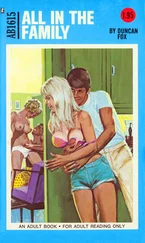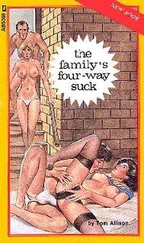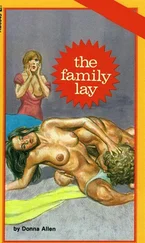They talked in whispers so as not to wake anyone, though they needn’t have worried. The library’s book-lined walls did not let any sound escape. Every word spoken in that room was muffled and swallowed up by the decades-old, yellowing pages of such volumes as Brideshead Revisited and A Passage to India .
“I wish Mum could have had her turn first,” said Allisande miserably. “Her way wouldn’t have involved us never seeing our friends again. She said so.”
“I’m confused,” said Lisette. “Mum said we might eventually move away, to somewhere where no one knows Perrine’s name—which made me think that would be her turn. But then she also said that if her turn were first, we wouldn’t have to be cut off from our friends. So . . . if we put those two things together, what could her favored plan of action possibly be?”
Allisande shrugged. Lisette was the sort of person who was always determined to get to the bottom of everything. Allisande was too miserable to dream up theories. She didn’t care what Sorrel’s plan would have been, only about what was going to happen to them all now, with Bascom having it his way.
“I loathe and detest him,” Allisande thought to herself, knowing that she didn’t really mean it. She thought her father’s approach to almost everything was idiotic and counterproductive, but she loved him because he was her dad, and it’s sensible to love your family unless one of your relatives is a truly evil murderer like Perrine.
“Maybe Mum’s plan was to move us all away but take our favorite friends with us?” suggested Lisette.
“I doubt it,” said Allisande. “I know Mum’s impractical at the best of times, but even she knows you can’t take your children’s best friends and move to the other end of the country with them. I don’t think the Sennitt-Sasses and the Carelesses would be very pleased if Mum packed Henrietta and Mimsie into her suitcase and took them miles away from Kingswear.”
The absurdity of this idea made both girls laugh. “Thank God I’ve got you,” Lisette said to Allisande. “I couldn’t cope with any of this if I didn’t have the best sister in the world.”
“Right back at you,” said Allisande (or whatever fifteen-year-old girls said in days of yore that meant the same thing). Then she said, “I think, when Mum has her turn, we’ll go back to school. That’s what I’m going to believe, anyway.”
“I don’t think so.” Lisette frowned. “I might be eighteen by then, or nineteen.” (She was seventeen at the time of this secret conversation in the library.) “I’d be too old to go to school. I’d have missed all my A-levels. In any case, the minute we went back to school, anyone who wanted to kill Perrine would be able to do so, wouldn’t they? I doubt a year or two would be long enough for everyone to forget how much they hate her. Even if they did, they’d remember as soon as she walked into the classroom again, wouldn’t they? They’d think, ‘Oh, there’s that murderer,’ and rush off to fashion a noose out of a sturdy rope.”
“Yes, Mum and Dad must know this,” said Allisande. “Which means no more school for us, and no social life. I can’t bear it!”
“Who do you think did it?” Lisette asked her sister. “The noose thing. Who was it, sitting on that tree branch?”
“Mr. or Mrs. Dodd, I expect.”
“I don’t think so. I can’t see either of them climbing a tree. If they wanted to murder Perrine, that’s not how they’d do it.”
“Then who do you think it was?”
“Well, obviously someone who knew Perrine would be playing rounders in the field that day. Someone who knew her school timetable—and the Dodds certainly didn’t. It wasn’t you, was it, Allisande?”
“No. It wasn’t me.”
“Nor me either,” said Lisette.
“You don’t think we ought to . . . ?” began Allisande.
“No,” said Lisette, shocked. “Look at the lengths Mum and Dad are willing to go to to protect Perrine—taking us out of school, even. They’d be devastated if we killed her.”
“You’re right,” Allisande agreed. “I could do it to her, but never to them. Forget I mentioned it.”
Lisette tried but she couldn’t. As those with personal experience of such a thing will know, it’s hard to forget one of your sisters suggesting the murder of the other.
7
Ellen, I swear: that’s not why I brought him home. I didn’t think about you, or George, at all. I’m not trying to replace George with a dog. The thought didn’t cross my mind.”
The three of us are in her bedroom. Four if you count Figgy, who is gnawing on the corner of Ellen’s school satchel. I wish he’d chew up the whole damn thing and all the exercise books inside it. Then, when he’s finished, he could make a start on the green cardigan Ellen’s about to put on, and her black uniform shoes.
I realize it’s pathetic, relying on an eight-week-old Bedlington terrier puppy to prevent my daughter from going to school when I’ve failed to do so.
Ellen could not be more determined. I see it in her granite stare as she stands in front of the full-length mirror in her bedroom, knotting her Beaconwood tie. No fourteen-year-old should look like this: braced, alert, resolute. Anyone would think she was about to stand trial for murder. It makes me want to weep. I long to help her, but how can I if she won’t tell me the whole truth?
She pulls off her tie and starts from scratch for the third time. Suddenly, today, it matters to her to make a perfect knot—the same child who, as recently as last week, would happily set off to catch the school bus with her tie draped around her neck like a scarf. She couldn’t have cared less about neatness before George was expelled.
If he was expelled. If he’s real.
“Answer Mum, El,” says Alex. “She’s trying to talk to you.”
“And I’m trying to get ready for school.”
“You’ve already missed the bus,” I tell her.
“Because you didn’t wake me up. You knew I wanted to go in, and you let me oversleep. You hoped I’d say, ‘Oh, has the bus gone? All right, I’ll just stay here and play with my new puppy, my friend-substitute, since I’m obviously so lonely without any human friends.’ Well, I’m not going to say that. I’m going to get Dad to drive me in.”
“I’ll drive you in once you’ve apologized to Mum. You’re assuming the worst about her and not letting her defend herself.”
“I’m not stopping her. She can say whatever she wants.”
“While you ignore her and snark at her?”
I walk over to the window and look out, so that Ellen can’t see how angry I am. If only I could sail away from all this on one of those boats I can see in the distance . . .
“If the presence of a dog in the house is going to turn you nasty, I’ll take him back to Olwen,” I say, enraging myself further with the idea that I might have to do this, and for no sensible reason. “She’d have him back in a heartbeat. Just say the word.”
“Figgy’s not going anywhere,” says Alex. “Look at him—he’s just a bundle of fur. We shouldn’t be using him to score points.”
“You’ve changed your tune since last night,” I mutter. “Then, it was all, ‘How could you take such a radical step without consulting me?’ and ‘Are you out of your mind?’ ”
“I’m adaptable and I have a sense of proportion, unlike everyone else around here,” Alex says. “For God’s sake, El, be unfairly angry with Mum if you have to, but don’t take it out on Figgy.”
Ellen whirls around to face him. “Have I done anything to the dog? Like, whatsoever?” she snaps.
“You’ve refused to look at him. You haven’t once called him by his name. His admittedly absurd name, but still . . .”
Читать дальше











